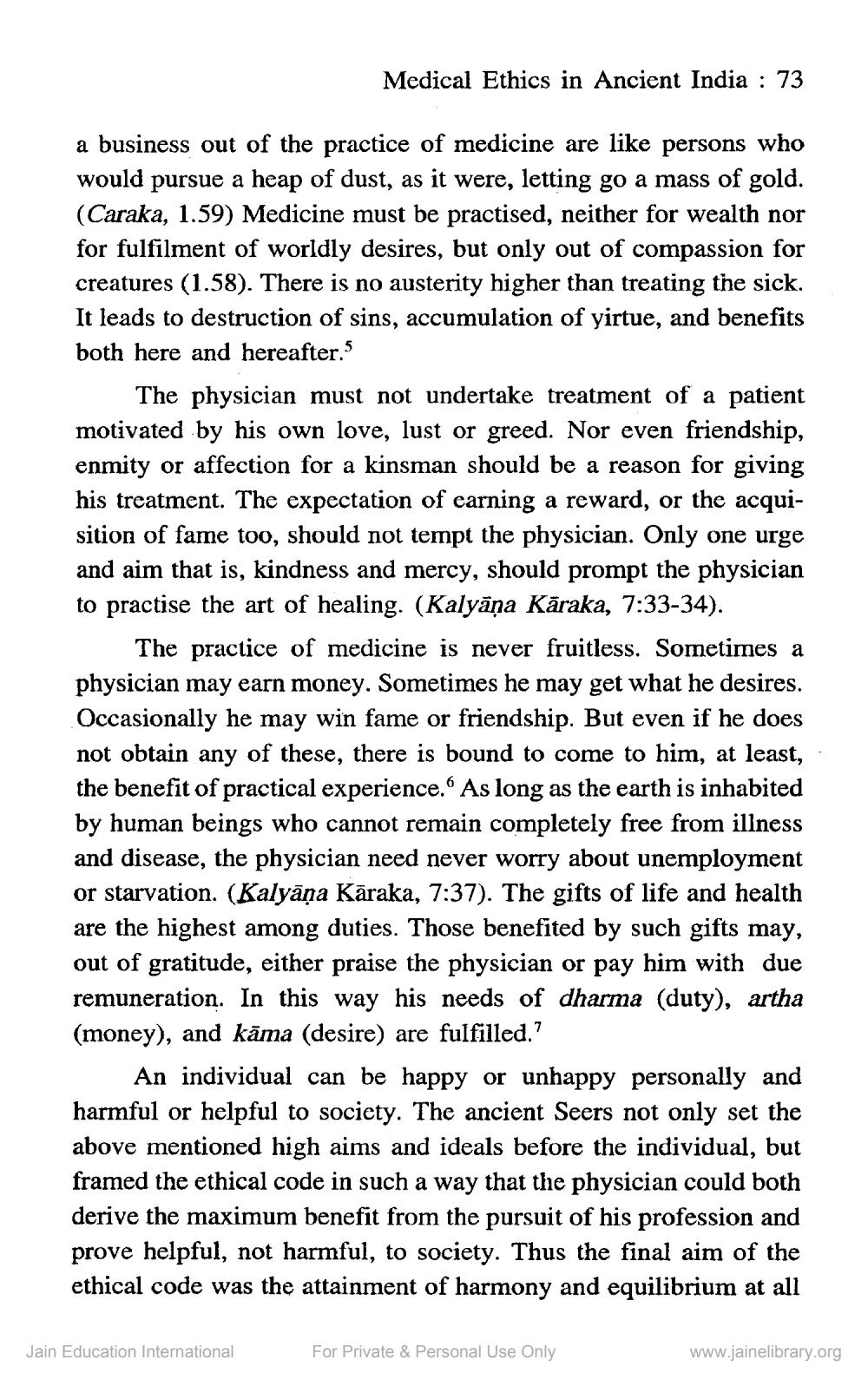________________
Medical Ethics in Ancient India : 73
a business out of the practice of medicine are like persons who would pursue a heap of dust, as it were, letting go a mass of gold. (Caraka, 1.59) Medicine must be practised, neither for wealth nor for fulfilment of worldly desires, but only out of compassion for creatures (1.58). There is no austerity higher than treating the sick. It leads to destruction of sins, accumulation of yirtue, and benefits both here and hereafter."
The physician must not undertake treatment of a patient motivated by his own love, lust or greed. Nor even friendship, enmity or affection for a kinsman should be a reason for giving his treatment. The expectation of earning a reward, or the acquisition of fame too, should not tempt the physician. Only one urge and aim that is, kindness and mercy, should prompt the physician to practise the art of healing. (Kalyāņa Kāraka, 7:33-34).
The practice of medicine is never fruitless. Sometimes a physician may earn money. Sometimes he may get what he desires. Occasionally he may win fame or friendship. But even if he does not obtain any of these, there is bound to come to him, at least, the benefit of practical experience. As long as the earth is inhabited by human beings who cannot remain completely free from illness and disease, the physician need never worry about unemployment or starvation. (Kalyāņa Kāraka, 7:37). The gifts of life and health are the highest among duties. Those benefited by such gifts may, out of gratitude, either praise the physician or pay him with due remuneration. In this way his needs of dharma (duty), artha (money), and kāma (desire) are fulfilled.?
An individual can be happy or unhappy personally and harmful or helpful to society. The ancient Seers not only set the above mentioned high aims and ideals before the individual, but framed the ethical code in such a way that the physician could both derive the maximum benefit from the pursuit of his profession and prove helpful, not harmful, to society. Thus the final aim of the ethical code was the attainment of harmony and equilibrium at all
Jain Education International
For Private & Personal Use Only
www.jainelibrary.org




